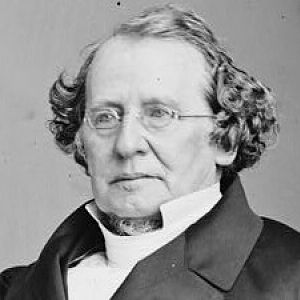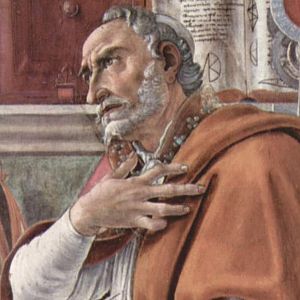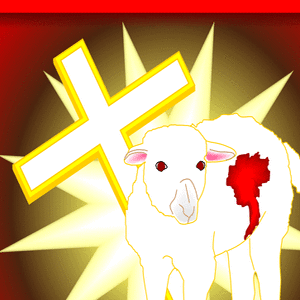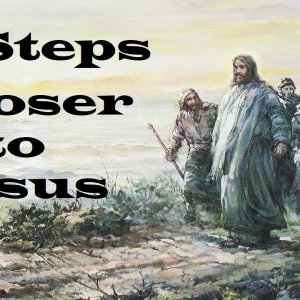
Pro Life Day Pics 012
- S StoneToFlesh15
- Oct 31, 2008
- 0 Comments

Christ in Clouds
-
 B1inHim
B1inHim - Jan 28, 2009
- 0 Comments
10 Bible Reading Tips – The Awesomeness of God – Christian Devotional
-
 maintenance man
maintenance man - Apr 16, 2024
- 1 Comments
Christian Devotional. We all will benefit greatly when we set aside some time to study the Word of God. Here are 10 things everyone should consider before ...

Angel- Karen's sweet girl, and Ferguson's half-sister
-
 dia_liom
dia_liom - Jul 15, 2009
- 0 Comments
5 Steps Closer to Jesus – Revealing Essential Scripture – Christian Devotional
-
 maintenance man
maintenance man - Apr 16, 2024
- 1 Comments
Christian Devotional. These five cautious steps will guide us along a path that strengthens our walk with Jesus. By following this simple to understand adv...
Spending Time with God – Revealing Essential Scripture – Christian Devotional
-
 maintenance man
maintenance man - Apr 16, 2024
- 1 Comments
Christian Devotional. Standing strong in the face of the enemy’s distractions is not an easy task. Our only hope is in our connection to God. The more tim...

![Dr. Cornelius Van Til, for 43 years professor of apologetics at Westminster Theological Seminary, Philadelphia, and emeritus professor there since his retirement in 1972, died at the age of 91 on April 17, 1987.
He was graduated from Calvin College (A.B., 1922), Princeton Theological Seminary (Th.B., 1924; Th.M., 1925) and Princeton University (Ph.D. 1927). He served as the pastor of the Christian Reformed Church in Spring Lake, MI, 1927–28 and was instructor of apologetics at Princeton Theological Seminary, 1928–29. He was professor of apologetics at Westminster, 1929–72. He held an honorary professorship at the University of Debrecen, Hungary, in 1938; the Th.D. (honoris causa) from the University of Potchefstroom, South Africa; and the D.D. from Reformed Episcopal Seminary, Philadelphia.
He was a minister in the Orthodox Presbyterian Church from 1936 until his death (40+ years). Van Til was also instrumental in the founding of Philadelphia-Montgomery Christian Academy, serving as the president of the board. Begun in September 1942, the school now has over 700 students, K-12, on campuses in three Philadelphia communities: Roxborough, Dresher and Erdenheim.
Van Til’s publications exceeded 300, including nearly forty books. He is perhaps best known for the development of a biblical (Reformed) approach to the task of defending the Christian faith. Although trained in traditional methods he drew on the insights of fellow Calvinistic philosophers Vollenhoven and Dooyeweerd to formulate a more consistently Christian methodology. His apologetic focused on the role of presuppositions, the point of contact between believers and unbelievers, and the antithesis between Christian and non-Christian worldviews.
In an interview with Christianity Today (December 30, 1977) he said, "There are two ways of defending the faith. One of these begins from man as self-sufficient and works up to God, while the other begins from the triune God of the Scriptures and relates all things to him. . . . The traditional ideas of trying to find some neutral, common ground on which the believer and unbeliever can stand are based on the notion that man is autonomous . . . [yet] Paul says, all men, knowing God, hold down this knowledge in unrighteousness. . . . [This knowledge] is the only basis man has on which he can stand, to know himself, to find the facts of his world and learn how to relate them to one another. Without the Creator-God-Redeemer of Scripture the universe would resemble an infinite number of beads with no holes in any of them, yet which must all be strung by an infinitely long string."](/data/xfmg/thumbnail/33/33514-89b2c90704955854b960bc34be7ef876.jpg?1668528846)
Dr. Cornelius Van Til, for 43 years professor of apologetics at Westminster Theological Seminary, Philadelphia, and emeritus professor there since his retirement in 1972, died at the age of 91 on April 17, 1987. He was graduated from Calvin College (A.B., 1922), Princeton Theological Seminary (Th.B., 1924; Th.M., 1925) and Princeton University (Ph.D. 1927). He served as the pastor of the Christian Reformed Church in Spring Lake, MI, 1927–28 and was instructor of apologetics at Princeton Theological Seminary, 1928–29. He was professor of apologetics at Westminster, 1929–72. He held an honorary professorship at the University of Debrecen, Hungary, in 1938; the Th.D. (honoris causa) from the University of Potchefstroom, South Africa; and the D.D. from Reformed Episcopal Seminary, Philadelphia. He was a minister in the Orthodox Presbyterian Church from 1936 until his death (40+ years). Van Til was also instrumental in the founding of Philadelphia-Montgomery Christian Academy, serving as the president of the board. Begun in September 1942, the school now has over 700 students, K-12, on campuses in three Philadelphia communities: Roxborough, Dresher and Erdenheim. Van Til’s publications exceeded 300, including nearly forty books. He is perhaps best known for the development of a biblical (Reformed) approach to the task of defending the Christian faith. Although trained in traditional methods he drew on the insights of fellow Calvinistic philosophers Vollenhoven and Dooyeweerd to formulate a more consistently Christian methodology. His apologetic focused on the role of presuppositions, the point of contact between believers and unbelievers, and the antithesis between Christian and non-Christian worldviews. In an interview with Christianity Today (December 30, 1977) he said, "There are two ways of defending the faith. One of these begins from man as self-sufficient and works up to God, while the other begins from the triune God of the Scriptures and relates all things to him. . . . The traditional ideas of trying to find some neutral, common ground on which the believer and unbeliever can stand are based on the notion that man is autonomous . . . [yet] Paul says, all men, knowing God, hold down this knowledge in unrighteousness. . . . [This knowledge] is the only basis man has on which he can stand, to know himself, to find the facts of his world and learn how to relate them to one another. Without the Creator-God-Redeemer of Scripture the universe would resemble an infinite number of beads with no holes in any of them, yet which must all be strung by an infinitely long string."
-
 Apologetic_Warrior
Apologetic_Warrior - Jun 14, 2011
- 0 Comments

Charles Hodge (born Dec. 27, 1797, Philadelphia, Pa., U.S. died June 19, 1878, Princeton, N.J.) "was the principal of Princeton Theological Seminary between 1851 and 1878. He is considered to be one of the greatest exponents and defenders of historical Calvinism in America during the 19th century. He matriculated at the College of New Jersey (now Princeton University) in 1812, and after graduation entered in 1816 Princeton Theological Seminary, having among his classmates his two lifelong friends, John Johns, afterward Episcopal bishop of Virginia, and Charles P. McIlvaine, afterward Episcopal bishop of Ohio. In 1819 Hodge was licensed as a minister by the Presbytery of Philadelphia, and he preached regularly at the Falls of Schuylkill, the Philadelphia Arsenal, and Woodbury, New Jersey over the subsequent months. In 1822 he was appointed by the General Assembly professor of Biblical and Oriental literature. In 1822 he married Sarah Bache, great-granddaughter of Benjamin Franklin. Soon after he went abroad (1826–1828) to prosecute special studies, and in Paris, Halle, and Berlin attended the lectures of Silvestre de Sacy, Friedrich Tholuck, Ernst Wilhelm Hengstenberg, and August Neander. There he also became personally acquainted with Friedrich Schleiermacher. In 1824, he helped to found the Chi Phi Society along with Robert Baird and Archibald Alexander. In 1825 he founded the Biblical Repertory and Princeton Review, and during forty years was its editor and the principal contributor to its pages. In 1840 he was transferred to the chair of didactic theology, retaining, however, the department of New Testament exegesis, the duties of which he continued to discharge until his death. He was moderator of the New Jersey General Assembly in 1846. Fifty years of his professorate were completed in 1872, and the event was most impressively celebrated on April 23 of that year. A large concourse, including 400 of his own pupils, assembled to do him honor. Representatives from various theological institutes, at home and abroad, mingled their congratulations with those of his colleagues; and letters expressing deepest sympathy with the occasion came from distinguished men from all quarters of the land and from across the sea. Hodge enjoyed what President Woolsey, at the jubilee just referred to, hoped he might enjoy, "a sweet old age." He lived in the midst of his children and grandchildren; and, when the last moment came, they gathered round him. "Dearest," he said to a beloved daughter, "don't weep. To be absent from the body is to be present with the Lord. To be with the Lord is to see him. To see the Lord is to be like him." Of the children who survived him, three were ministers; and two of these succeeded him in the faculty of Princeton Theological Seminary, C. W. Hodge, in the department of exegetical theology, and A. A. Hodge, in that of dogmatics. A grandson, C.W. Hodge, Jr., also taught for many years at Princeton Seminary. Hodge wrote many biblical and theological works. He began writing early in his theological career and continued publishing until his death. In 1835 he published his Commentary on the Epistle to the Romans, which is considered to be his greatest exegetical work. Other works followed at intervals of longer or shorter duration - Constitutional History of the Presbyterian Church in the United States (1840); Way of Life (1841, republished in England, translated into other languages, and circulated to the extent of 35,000 copies in America); Commentary on Ephesians (1856); on First Corinthians (1857); on Second Corinthians (1859). His magnum opus is the Systematic Theology (1871–1873), of 3 volumes and extending to 2,260 pages. His last book, What is Darwinism? appeared in 1874. In addition to all this it must be remembered that he contributed upward of 130 articles to the Princeton Review, many of which, besides exerting a powerful influence at the time of their publication, have since been gathered into volumes, and as Selection of Essays and Reviews from the Princeton Review (1857) and Discussions in Church Polity (ed. W. Durant, 1878) have taken a permanent place in theological literature. This record of Hodge's literary life is suggestive of the great influence that he exerted. But properly to estimate that influence, it must be remembered that 3,000 ministers of the Gospel passed under his instruction, and that to him was accorded the rare privilege, during the course of a long life, of achieving distinction as a teacher, exegete, preacher, controversialist, ecclesiastic, and systematic theologian. As a teacher he had few equals; and if he did not display popular gifts in the pulpit, he revealed homiletical powers of a high order in the "conferences" on Sabbath afternoons, where he spoke with his accustomed clearness and logical precision, but with great spontaneity and amazing tenderness and unction. Hodge's literary powers were seen at their best in his contributions to the Princeton Review, many of which are acknowledged masterpieces of controversial writing. They cover a wide range of topics, from apologetic questions that concern common Christianity to questions of ecclesiastical administration, in which only Presbyterians have been supposed to take interest. But the questions in debate among American theologians during the period covered by Hodge's life belonged, for the most part, to the departments of anthropology and soteriology; and it was upon these, accordingly, that his polemic powers were mainly applied. All of the books that he authored have remained in print over a century after his death." - Wikipedia
-
 Apologetic_Warrior
Apologetic_Warrior - Feb 28, 2011
- 0 Comments

Augustine of Hippo (/Latin: Aurelius Augustinus Hipponensis) (November 13, 354 – August 28, 430), also known as Augustine, St. Augustine, St. Austin, St. Augoustinos, Blessed Augustine, or St. Augustine the Blessed, was Bishop of Hippo Regius (present-day Annaba, Algeria). He was a Latin-speaking philosopher and theologian who lived in the Roman Africa Province. His writings were very influential in the development of Western Christianity. He is the pre-eminent "Doctor of the Church" according to Roman Catholicism, and is considered by Evangelical Protestants to be in the tradition of the Apostle Paul as the theological fountainhead of the Reformation teaching on salvation and grace. Accepted by most scholars to be the most important figure in the ancient Western church, St. Augustine was born in Tagaste, Numidia in North Africa. His mother was a Christian, but his father remained a pagan until late in life. After a rather unremarkable childhood, marred only by a case of stealing pears, Augustine drifted through several philosophical systems before converting to Christianity at the age of thirty-one. At the age of nineteen, Augustine read Cicero's Hortensius, an experience that led him into the fascination with philosophical questions and methods that would remain with him throughout his life. After a few years as a Manichean, he became attracted to the more skeptical positions of the Academic philosophers. Although tempted in the direction of Christianity upon his arrival at Milan in 383, he turned first to neoplatonism, During this time, Augustine fathered a child by a mistress. This period of exploration, including its youthful excesses (perhaps somewhat exaggerated) are recorded in Augustine's most widely read work, the Confessions. During his youth, Augustine had studied rhetoric at Carthage, a discipline that he used to gain employment teaching in Carthage and then in Rome and Milan, where he met Ambrose who is credited with effecting Augustine's conversion and who baptized Augustine in 387. Returning to his homeland soon after his conversion, he was ordained a presbyter in 391, taking the position as bishop of Hippo in 396, a position which he held until his death. Besides the Confessions, Augustine's most celebrated work is his De Civitate Dei (On the City of God), a study of the relationship between Christianity and secular society, which was inspired by the fall of Rome to the Visigoths in 410. Among his other works, many are polemical attacks on various heresies: Against Faustus, the Manichean; On Baptism; Against the Donatists; and many attacks on Pelagianism and Semi-Pelagianism. Other works include treatises On the Trinity; On Faith, Hope, and Love; On Christian Doctrine; and some early dialogues. St. Augustine stands as a powerful advocate for orthodoxy and of the episcopacy as the sole means for the dispensing of saving grace. In the light of later scholarship, Augustine can be seen to serve as a bridge between the ancient and medieval worlds. A review of his life and work, however, shows him as an active mind engaging the practical concerns of the churches he served. - Wikipedia, Theopedia, Christian Classics Ethereal Library
-
 Apologetic_Warrior
Apologetic_Warrior - Jun 16, 2011
- 0 Comments




